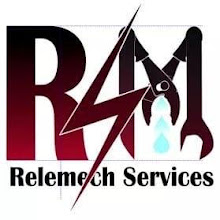Charge controllers regulate the power that is supplied to the batteries by solar panels as overcharging your batteries would greatly lower their life and perfomance. Basically, they are mean`t to prevent the batteries from overcharging by stopping charging when the battery is charged to a certain predetermined level. There are two types of charge controllers available in the market; Pulse Width Modulation(PWM) and Maximum Power Point Tracking(MPPT). Take note that the choice of the type of controller should not be based on their comparisons but on which type will work best for your solar pv system. What makes them different?
Pulse Width Modulation Charge ControllersThe most basic ones, monitors the batteries and simply cut off the power once the batteries are charged to the maximum level. The controllers allows as much current into the battery during charging, as the batteries gets closer to the target,they switch to not allowing any more current into the battery bank. The most modern PWM controllers, switches off gradually as the battery approaches its maximum charge which allows the batteries to be fully charged without much stress. They can also keep the batteries in fully charged state for quite some time.
Advantages of PWM
- Smaller in size
- They are relatively cheap compared to MPPT
- Longer life because of fewer electronic compnents
Disadvantages of PWM
- Voltage rating must match your system`s nominal voltage
- Not a single PWM controller is rated above 60A
- Cannot be used on higher voltage grid connect systems
Maximum Power Point Tracking Charge Controllers
This is the most recent of the two. This type of controller has the capabilities of converting excess voltage into amperage. MPPT controllers allows much higher voltage from the panels thus preventing power loss and thus higher efficiency compared to the PWM. They essentially find out at any given condition, what is the maximum operating point for the panels current and voltage. With this method, MPPT controllers are actually 94-99% efficient.
Advantages of MPPT Charge controllers
- Relatively higher charging efficiency especially in colder weather
- Have ability to have solar panels with higher voltage ratings to that of battery bank
- Rated upto 80 Amps higher than pwm
- Have longer warranties
Disdvantages of MPPT Charge controllers
- Relatively expensive
- Very large in size
- Shorter lifespan because of the many electronic compnents.
Which one would work best for you? Based on the fact that you would get more power from your pv system, we would recommend MMPT charge controllers.













